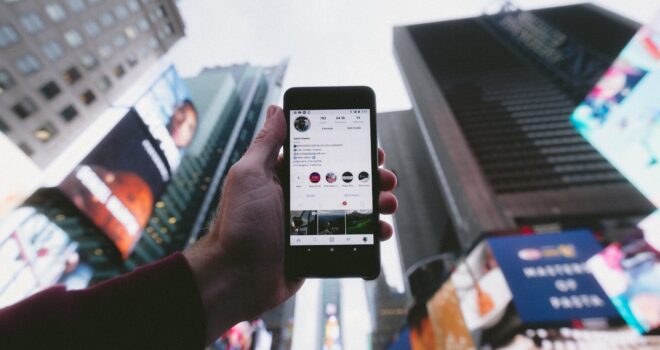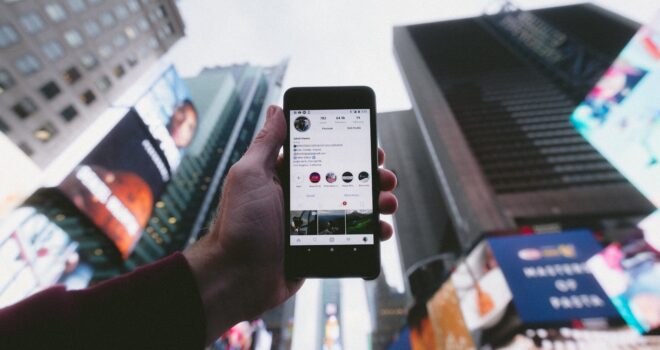I recently finished reading Ten Arguments for Deleting Your Social Media Accounts Right Now by Jaron Lanier. It’s a masterpiece. After watching him in The Social Dilemma, a documentary on Netflix about the downsides of the tech boom, I was intrigued.
I was expecting the book to delve his intel into the tech companies’ money-grabbing plans. What I wasn’t expecting was the chapter he titled “Social Media Hates Your Soul.”
While Lanier isn’t Catholic, he’s getting closer. And I’m pleased as punch that he tip-toed into the spiritual aspect of technology use– a topic I am dearly fond of.
I thought I’d elaborate on a few of Lanier’s points from a Catholic perspective in this article: Six Reasons to Leave Social Media Forever, and One Reason to Stay.
1. It Divides the Mind
St, Thomas Aquinas once wrote that “Wonder is the desire for knowledge.” And when we have a screen in our hands, we wonder less.
Statistics have shown that the negative effects screens have on our brains is dangerous. They scramble our psyches by altering the way we think, how we sleep, and even our creativity (link).Authors like Nicholas G. Carr (The Shallows) Adam Altar (Irresistible) and more have blown the paradoxical whistle to warn us just how dangerous these efficiency machines can be.
Take for example the following scenario: Prior to Google, our brains would be struck with wonder about a certain idea. We’d get lost in that wonder and ponder it in our minds until we found a suitable means to know it intellectually.
For a tangible example, when my father’s car died, we’d wonder why. Then, we’d inspect it and know it was the battery that needed replacement.
For a more philosophical example, let’s say I was playing outside and saw a bird that I had never seen before. I’d follow it to memorize its markings and listen to its caw. When it flew away, I’d keep its looks and sounds in my memory, pondering it, wondering what type of bird it was. Then, once I finally made it to the library, I’d research the bird in a book, take notes, and maybe set up a bird feeder with its preferred food so I could see it again.
Today, we YouTube the car problem the moment we discover that our chariots won’t move (or send it to the he mechanic so they can take care of it).
As for the bird, I doubt we ever pay attention to any other tweet than the one’s now owned by Elon Musk.
We used to rely on a mind that depended on focused intent. Now we Google with unfocused indifference and cannot commit things to memory. There’s no will. We’ve replaced metaphysical epiphanies derived from real world interaction with dopamine hits shot out in invisible, numbing signals from the digital world.
2. It Keeps Us from Doing What We Ought
Distractibility is the new currency. Tech companies are capitalizing on our attention. They have entire departments developed to study the psychology of technology use, and they have three driving questions–
1) What draws users to our product?
2) What makes our users addicted to our product?
3) How do we monetize our users’ attention?
The answer to all three questions is simple– distraction
One could argue that what draws us to services like Google and social media is efficiency. We start off innocent enough, searching for something that will make our lives better or sharing pics with our family and friends that are oceans away. But the answers to questions two and three tell a different story, don’t they? They tell the story of distraction with an end game of behavioral addiction.
3. It Feeds on Our Weaknesses
Humans are at their best when they are focused. Our species has depended on this strength for millennia. Need to escape from a lurking lion in the Savannah? Focus. Need to survive on a seemingly inhabitable plot of land because war broke out in your village? Be resourceful. Want to become a CEO of a major company or win a gold medal at the Olympics? Plan your strategy.
Hard work is a virtue. In Catholicism, we call it a form of fortitude, and having this ability to focus our lives through both the joyful and sorrowful times is paramount to our physical and spiritual survival.
Social media takes that away more times than not.
In fact, SM makes us less virtuous. The algorithms used to distract its users capitalize on our vices. That’s why they throw in “recommended for you” posts that dial in on your human nature– power, pleasure, and pride– instead of your heavenly nature which consists of faith, hope, and love.
Porn gets more clicks than the Pope.
Online shopping gets more traffic than catechetical content.
The political left and right make you lean farther away from the middle path.
The algorithm is engineered to feed on your folly.
4. Most of It Isn’t Even Real
Artificial intelligence is replacing human creativity and brain-work at an astonishing rate. As I’ve mentioned in previous articles (link), AI has become an impressive tool for content creation, but a the cost of original thought. Many of the articles you read, ads you see, even videos you watch have been created using AI. As a result, a lot of the “people” and “content” we see today are generated by a computer that collects information from all over the world in microseconds.
Even before artificial intelligence became commonplace, many social media accounts were (and still are) just bots. I can’t count how many times during my interactions that I’ve interacted with a bot either on Twitter or Facebook because they’ve gotten really good at posing as humans– even our own friends and family!
Can’t trust anyone, digitally.
5. It Gives Us a False Sense of Community
Bots aside, SM makes us feel connected to others, but in reality it divides us more. As stated earlier in point #3, the algorithms keep our eyes on “he who complains the loudest” and “she who calls the most attention to herself.” Ever notice how the most popular users (the ones with the most followers) are always those who go to extremes?
It’s because the algorithms identify your preferences and guide you toward more clickable content. They steer you into tribes of like-minded users because they know that you’ll click on their links, buy their merch, and engage with their ideologies.
You might feel like you have found “your people,” but your neighbor, the guy next to you in the pew, even your own family members might follow the other guy, the one at the opposite extreme with the even bigger tribe.
And they’ve seen the things you post (or re-post from the influencer you follow).
They’ve made up their mind about who they think you are.
And they might not let their kids play with yours.
They surely won’t let you borrow their truck to move that new ping-pong table into your garage.
They might not even attend your Parish festival because they know you’re going to be there.
That might seem like an extreme example, but it’s happening right now in your neighborhood, in your parish, at your work, and in your child’s school.
Your digital life paints an extreme picture of you, one that can alienate you from social circles and isolate you from true human interaction.
6. It Erases Prayer Time
Statistics show that the first thing most people see when they wake up is their phone. Before they take their first step out of bed, they’re checking email, viewing social media, and maybe, just maybe turning off their alarm (and not just hitting the snooze button).
The device follows them into the bathroom, onto the breakfast bar, into the car, and sits side-by-side with them at work. The chain of events extends throughout the rest of the day and night until they collapse onto their beds with charging chord attached to their Pandora’s boxes.
Prayer becomes optional, a thing our parents did a lifetime ago that had no entertainment value, no economic return upon investment, and no reason to exist.
The behavioral addiction of constant tech use eradicates prayer lives. It puts up an invisible fence around our psyche that keeps spirituality out and individuality in. When we try to cross that line by entering into contemplative silence (or even boredom), we get a shock to our brains that demands dopamine.
So we unlock our phones to satisfy our earthly longings, ignoring our eternal destinies.
+
One Reason to Stay: Evangelization
Pope Francis once told our Bishops that they “must be shepherds who smell like their sheep.” What he meant was that we shouldn’t be a sectioned-off people, separated by zip codes, socioeconomic status nor intellectual capacities. Rather, we should be a united one– just like God is One, so too should His Church be One.
And it all starts with evangelization.
Everyone needs to be evangelized, even those who have already been evangelized need more evangelization. To live the Gospel life is a minute-by-minute choice, and if you look at the average person’s screen time statistics you’ll notice that most of their minutes are spent on phones, tablets, laptops, and monitors.
To “smell like sheep,” then, we should be on social media, grazing with the 1 (or perhaps the 99) that have become lost in the dangerous lurkings of the interwebs.
To have a social media account is to be a missionary to the digital continent. As discussed above, there are many dangerous unknowns that can take hold of our souls if we are not careful. Jesus sends us anyway: “Behold, I am sending you out as sheep in the midst of wolves, so be wise as serpents and innocent as doves” (Matt. 10:16).
Prior to opening our social media apps, perhaps it’d be in our best interest if we prayed this updated (and abbreviated) version of St. Patrick’s Breastplate:
Christ with me, Christ before me, Christ behind me,
Christ in me, Christ beneath me, Christ above me,
Christ on my right, Christ on my left,
Christ on my screen, Christ on social media through me.












